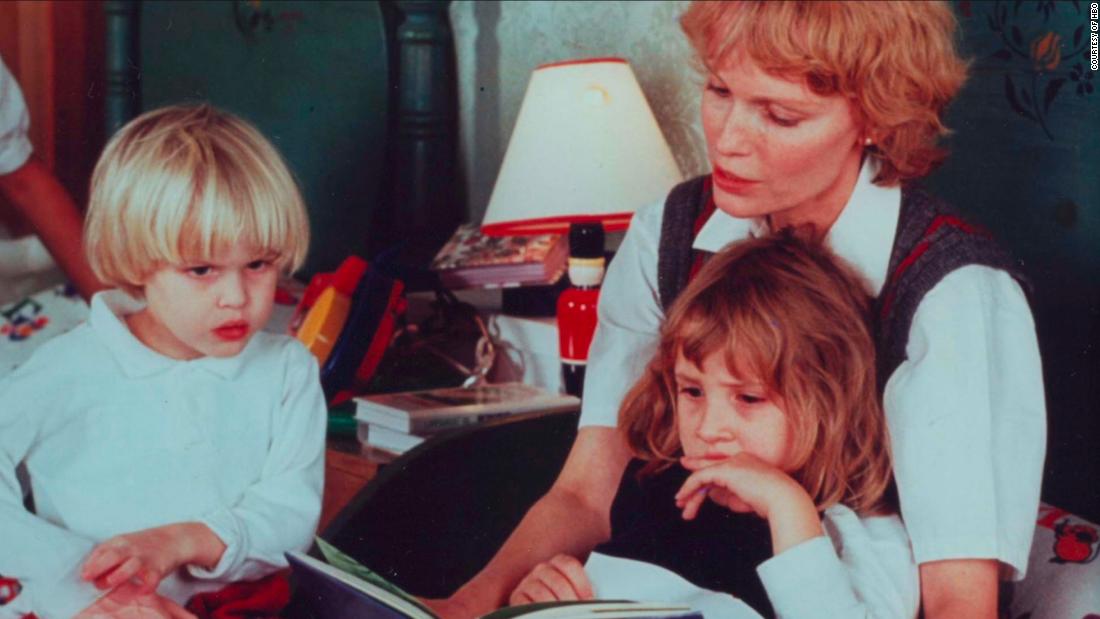Allen has staunchly denied that he ever abused Dylan, a disclaimer affixed to each chapter. “Allen v. Farrow” methodically explores the case against him while presenting various facets of the story, including admiration of Allen as a cinematic genius, Farrow’s personal and acting history, and their unorthodox relationship before its abrupt end.
There’s little doubt where the filmmakers’ sympathies lie. The docuseries underscores how coverage at the time — focusing on Allen’s affair with Farrow’s adopted daughter, Soon-Yi Previn — only told part of the story.
Dylan was seven when the alleged assault happened in 1992, and “Allen v. Farrow” exposes the bruising legal and public-relations battle that ensued — including the bare-knuckled tactics the normally press-shy Allen and those working on his behalf employed.
Allen’s contention was, and remains, that the “scorned” Farrow coached or cajoled Dylan to level accusations against him — referred to as “parental alienation” in psychiatric terms — as retaliation for his betrayal with Soon-Yi. Dylan, meanwhile, discusses finding the resolve to speak publicly, from her essay asking how the world could continue celebrating Allen to saying, “I’m tired of not being believed.”
Arguably, the most illuminating section details a 1993 hearing in which Allen sought custody of his and Farrow’s three children. The judge issued a damning ruling against him, writing that Allen’s behavior toward Dylan was “grossly inappropriate.”
Allen declined to be interviewed for the documentary and told the New York Times he had no comment about it. His manager has not responded to a request for comment.
Creatively speaking, there are some missteps. The producers incorporate a few stilted sequences in the final hour, such as Dylan’s meeting with former Connecticut prosecutor Frank Maco, discussing his decision not to pursue charges against Allen.
The project also wades through Allen’s filmography and writing, critically analyzing his habit of romantically pairing young women (and in a few instances teens) with much-older men as a window into his psyche.
In her interviews, Mia Farrow says she didn’t want to believe the worst about Allen and could understand the skepticism of some fans. Yet there are those like Washington Post critic Peter Marks, who, having covered the 1993 proceedings, concludes, “I could never watch a Woody Allen film again after this.”
At the outset, Dylan states, “No matter what you think you know, it’s just the tip of the iceberg.” Despite the painstaking research, viewers might come away not entirely sure what they “know,” as opposed to what they believe. There’s a lot to digest, complicated by events and recollections involving children over the course of a tale that spans decades.
Even a generous reading of Allen’s behavior, however, casts him in a troubling light. And a harsh judgment in the court of public opinion, at this point, might be the closest thing to a true verdict that “Allen v. Farrow” can deliver.
“Allen v. Farrow” premieres Feb. 21 at 9 p.m. ET on HBO, which, like CNN, is a unit of WarnerMedia.

